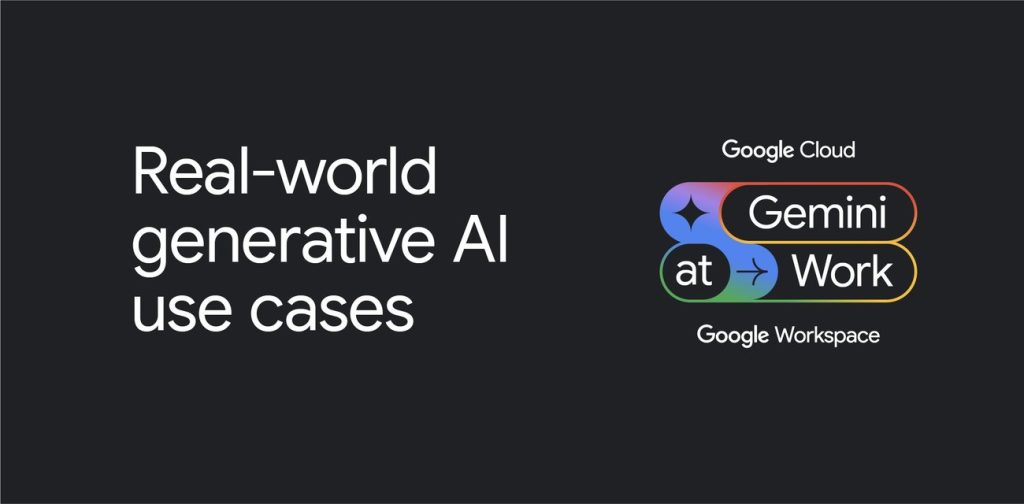Real-World AI Use Cases from Industry Leaders

Generative AI has invaded the professional world beyond pleasant chit-chats and quirky limericks. Industry giants, government bodies, and fresh startups have discovered fantastic applications for this technology. From the recent Google Cloud Next ’24 event, here’s a peek into how top players are transforming their operations with AI.
Companies are embracing AI to handle tasks once thought to require human touch. Take Alaska Airlines, crafting an AI-powered virtual travel agent that talks to customers like a savvy human assistant. It streamlines booking, enhances customer experience, and strengthens the brand.
Employee health benefits platform, Bennie Health, is leveraging AI to offer insights and data management, making decisions snappy and efficient. Meanwhile, tech-driven non-profit Beyond 12 uses an AI-powered college coach to guide first-generation students through text, app, and web, providing scalable, personal coaching.
Another innovation is CareerVillage’s Coach, boosting job seekers, especially underrepresented youth, with its array of job preparedness activities, aiming to expand to over 100 activities by next year. Character.ai uses Google’s full AI stack to handle terabytes of conversational data daily, ensuring seamless operations.
Generative AI is also making its mark on healthcare. Click Therapeutics deploys AI to glean insights from complex clinical data, enhancing patient experiences. Formula E summarizes lengthy race commentaries into bite-sized podcasts in multiple languages, weaving in driver data and seasonal storylines.
AI’s efficiency is revolutionizing customer service models too. General Motors’ OnStar added a virtual assistant to improve call recognition. Gojek’s AI voice assistant, ‘Dira’ in Indonesia, streamlines tasks for users by eliminating typing and scrolling with voice commands.
Hotelplan Suisse crafted a chatbot to address customer inquiries in real-time, paving the way for AI-generated travel content. On the legal front, Justicia Lab developed an AI assistant to help immigrants and asylum seekers navigate complex legal processes.
In e-commerce, Mercado Libre utilizes semantic search for better product recommendations, delighting over 200 million users in Latin America. Motorola’s Moto AI uses multifaceted AI tools to enhance productivity and creativity on their smartphones.
Organizations focusing on employee productivity are seeing great returns too. Companies are building AI agents to streamline repetitive tasks and manage workflow. For instance, Best Buy generates real-time conversation summaries to assist live agents, reducing call times and improving satisfaction.
Bell Canada created customizable AI contact center solutions that significantly cut costs across customer operations. Fireflies.ai revolutionized transcription and summary tasks, improving team collaboration. DaVita uses AI for better data insights, ultimately enhancing patient care.
The integration of AI in application development is also noteworthy. Developers are using AI to write, debug, and operate code with newfound speed and precision. Labelbox’s fully managed AI model evaluation solution speeds up project timelines, while Leroy Merlin’s AI summarizes code changes for quicker comprehension.
In finance, Hiscox implemented an AI-enhanced underwriting model that accelerates quoting complex risks. Wayfair’s developers saw a dramatic boost in productivity with AI-powered code agents, making work more enjoyable.
Data-focused AI applications are invaluable. Companies like Bayer Crop Science develop AI-powered recommendations for greater yields and carbon reduction in agriculture. CME Group is creating AI-augmented trading platforms for better insights and rapid testing of new strategies without trade interruption.
Financial services provider Intelligencia AI uses AI for novel drug research, ensuring precision and compliance. Fullstory, a digital behavioral data platform, enhances chatbot experiences by analyzing user behavior on sites.
Security is another crucial area AI addresses. NetRise introduced AI-powered searches to assess software supply chain security based on intent and purpose behind code and configurations. Pfizer’s AI systems now aggregate cybersecurity data in seconds, cutting analysis time dramatically.
On the creative front, companies are capitalizing on AI for design and production. Jasper trains AI models on Google’s infrastructure to create branded, data-optimized assets. Puma leverages AI for locally relevant product photos, seeing increased customer engagement.
Paramount relies on AI to streamline metadata and video summaries for Paramount+, improving personalized viewer experiences. WPP integrates AI to supercharge marketing predictions and content performance, empowering creativity.
The leaps in AI technology are transforming industries globally, enhancing efficiency, security, and creativity. As these real-world use cases demonstrate, AI is no longer a futuristic concept but a present-day revolution reshaping business and beyond.





